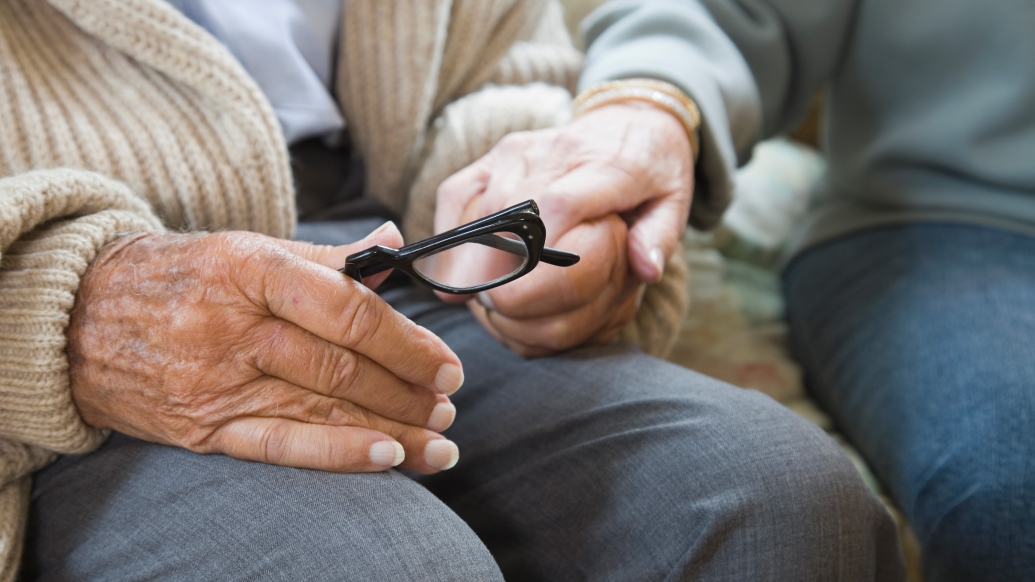Study of people in Medicare Advantage plans suggests need for efforts to support joint decision-making
12:20 PM
Author |

Older Americans who enroll in Medicare, or change their coverage, do so as individuals, even if they’re married or live with a partner. But a new study suggests the need for more efforts to help both members of a couple weigh and choose their options together.
The study, published in JAMA by a team from the University of Michigan, focused on the half of older adults enrolled in Medicare Advantage plans run by private insurance companies. It finds a close linkage between couples in both their decision to stay in the same plan, and to change to another Medicare Advantage plan or switch to traditional Medicare run by the federal government.
“Being a member of a couple and sticking to the partner’s enrollment decisions was more important than any other factor in predicting whether a person with Medicare Advantage would change insurance coverage for the next year,” said Lianlian Lei, Ph.D., the lead author of the study and an assistant professor of psychiatry at the U-M Medical School.
The researchers started by analyzing the Medicare Advantage enrollment for one member of each of 1,812 couples – call them Partner A. They then looked at any changes that these individuals made for the next year’s coverage and looked at whether Partner B in each couple changed plans or types of Medicare coverage.
At the start of the study, 84% of the couples had both partners enrolled in the same Medicare Advantage plan. When it came time to decide about coverage for the next year, 80% of Partner A individuals remained in the same Medicare Advantage plan – and, among those who stayed, so did 95% of Partner B individuals.
About 18% of the Partner A individuals changed to another Medicare Advantage plan for the next year. And 86% of their partners changed to another plan too.
As for the 2% of Partner A individuals who disenrolled from Medicare Advantage and turned to traditional Medicare, 69% of the Partner B individuals they were married to or lived with also did the same.
Other characteristics — the kind that researchers have typically focused on when studying Medicate Advantage plan choices— were either not associated or had a markedly smaller association with the chance of changing Medicare Advantage plans or moving to traditional Medicare.
Lei and her colleagues did the study by linking data from Medicare and from the nationally representative Health and Retirement Study based at U-M’s Institute for Social Research.
They are now hoping to study the issue further by exploring these tandem insurance choices among Medicare beneficiaries.
In the meantime, the researchers note that policymakers, insurance companies and advocates for older adults may want to offer more tools to help couples decide if the same Medicare Advantage plan, or traditional Medicare, is best for both of them, or if they would be better off choosing two different options based on their individual health care needs.
In addition to Lei, the study’s authors are senior author Donovan Maust, M.D., M.S., an associate professor of psychiatry at U-M and geriatric psychiatrist at the VA Ann Arbor Healthcare System; as well as Helen Levy, Ph.D. of the U-M Institute for Social Research; Geoffrey Hoffman, Ph.D. of the U-M School of Nursing; Hyungjin Myra Kim, Sc.D. of the U-M School of Public Health; Julie Strominger, M.S. of the VA Center for Clinical Management Research; and Claire Ankuda, M.D., M.P.H., M.Sc. of the Icahn School of Medicine at Mount Sinai.
Lei, Maust, Levy, Hoffman and Kim are all members of the U-M Institute for Healthcare Policy and Innovation.
The study was funded by the National Institute on Aging at the National Institutes of Health (AG066582, AG075145, AG056407, AG064427 and AG074944).
Partner Plan Choices and Medicare Advantage Enrollment Decisions Among Older Adults, JAMA, doi:10.1001/jama.2024.1773

Explore a variety of health care news & stories by visiting the Health Lab home page for more articles.

Department of Communication at Michigan Medicine






